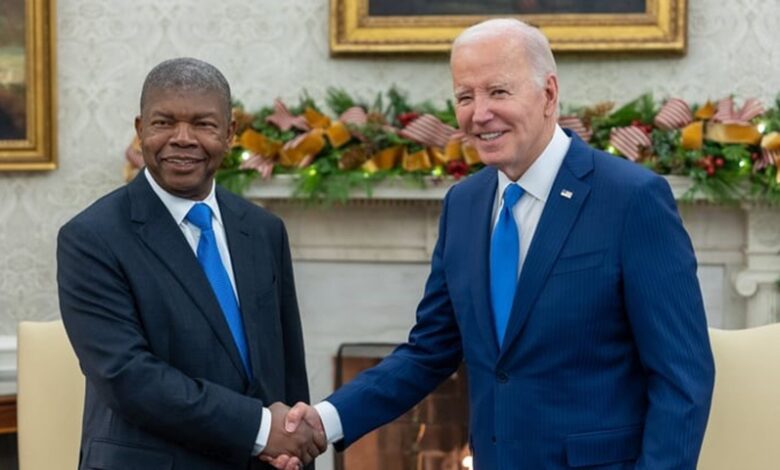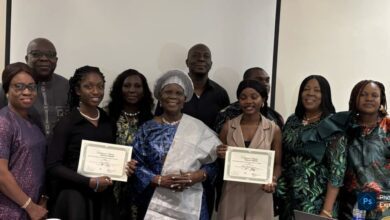Biden pledges lasting support to Africa in Angola visit


Joe Biden pledged lasting U.S. engagement with Africa as he met his Angolan counterpart Joao Lourenco in Luanda on Tuesday, as part of his first and only visit to sub-Saharan Africa as U.S. president.
During brief remarks at the presidential palace, Biden pledged lasting engagement on Africa’s own terms. He said the United States was “all in on Africa”, repeating a phrase he used during a U.S.-Africa summit in Washington in December 2022.
“You should understand the extent to which we’re prepared to be engaged,” Biden said ahead of a private meeting with Lourenco. “We don’t think we have all answers, but we’re prepared to hear your answers to the needs you have.”
Biden’s 11th-hour visit in the final days of his presidency aimed to deliver on a pledge to visit the continent during his term, which ends in January. He had initially promised to visit in 2023.
Lourenco said Angola wanted to work with the United States to attract foreign investment and improve defence and security ties, including joint military exercises and cooperation in the Gulf of Guinea and South Atlantic.
He also praised U.S. companies’ investments in Angola’s oil and gas sector and in various upcoming projects such as grain silos and logistics infrastructure.
“We’re going to move beyond Cold War relations, where we weren’t always aligned, and make a turning point in relations between the two countries,” he said, alluding to U.S. support for one of the armed factions in Angola’s long civil war, in part a proxy conflict between the U.S. and the Soviet Union.
Biden’s trip will also focus on the Lobito Corridor, a partly U.S.-funded railway project aimed at making it easier to export critical minerals from the mining heartlands of Democratic Republic of Congo.
While Biden’s presidency is in its last weeks, President-elect Donald Trump will likely back the railway and remain a close partner to Angola when he returns to the White House in January, according to two officials who served under the previous Trump administration.
Despite Biden’s pledges to be “all in on Africa”, U.S. influence there has declined during his term in office. The incoming Trump administration will have to address blind spots in its understanding of a fast-changing continent increasingly allied with China and Russia, and threatened by spreading jihadist insurgencies.
Later on Tuesday, Biden visited Angola’s National Museum of Slavery to mark the two nations’ shared history in the transatlantic slave trade.
The site includes the 17th-century chapel where enslaved people were forcibly baptized before being sent to the Americas in chains.
The first Africans to arrive in the British colony of Virginia in 1619 had been captured in Angola. Overall, 4 million Angolans were forcibly transported to the Americas, mostly to Brazil but also to what is now the United States.
Biden’s audience at the museum included Wanda Tucker, a descendant of William Tucker, the first enslaved child born in the United States, whose parents were brought to colonial Virginia from Angola in August 1619 aboard the Portuguese ship White Lion.
The museum formerly belonged to one of the largest enslavers on the African coast. Inside, several objects that were used to torture and punish enslaved people can still be seen, including shackles and iron weights.
The United States is announcing a grant of $229,000 to support the building’s restoration.
About 160 years after slavery was abolished in the United States, vast wealth gaps still exist between white and Black Americans, land ownership remains concentrated among wealthy whites and a fraught political debate is centered on diversity, equity and how to reckon with the country’s racial history.
Biden is not expected to talk about U.S. reparations over the slave trade during his trip.




